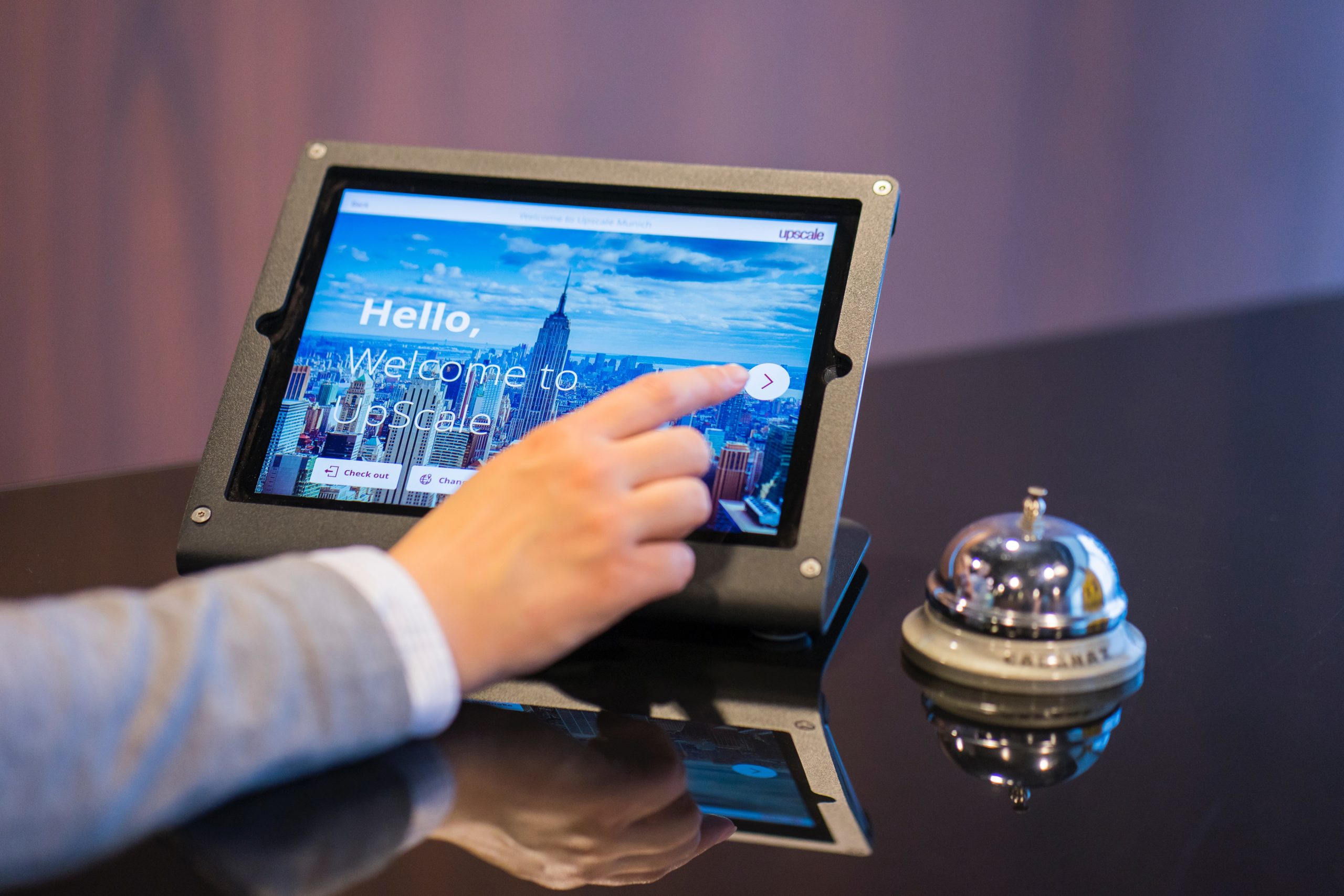Why Your Hotel Needs a Review Management Strategy

Have you ever done a Google search when looking for the perfect hotel and come across one that has an average rating of 3.5 stars? You might have thought, “There are plenty of other options.” Star ratings are one of the first things travelers see, and if the hotel right around the corner has more or better ratings and reviews, travelers might be willing to give them a chance.
As a hospitality marketer, you need to be proactive about feedback from your guests. Reviews are now one of the most important factors in a traveler’s decision-making process when it comes to booking their next stay. It is not enough for hotels to simply respond to and resolve guest complaints — they also need a plan that helps them proactively solicit reviews as well as establish an ongoing review management strategy. Many travelers make decisions based on reviews, which means good or bad feedback can impact business greatly.
So, how do you know if your hotel needs a review management strategy? And how do you create a process? Hotels are in the business of providing guests with a great experience, so it’s important to monitor reviews and respond to them appropriately. Reviews can be good or bad, but both should be taken seriously. If you want your hotel to thrive, invest time in developing a review management strategy and make sure all team members are involved.
Why does my hotel need a review management strategy?
Staying on top of guest reviews across platforms allows hotel management to be proactive to potential issues, improving the customer feedback loop and ensuring your hotel can make any necessary adjustments quickly to improve the guest experience.
But outside of the obvious customer service aspect that comes with a review management strategy, all signs point to responsive hotels enjoying additional benefits — including increased bookings. The data on guest reviews and responsive hotels is telling:
- According to TripAdvisor, 96% of users consider reading reviews important when researching and booking a hotel. And 83% said they ‘usually’ or ‘always’ reference a hotel’s reviews before booking a hotel.
- Meanwhile, TripAdvisor found that 85% of users agreed a thoughtful response from hotel management to a bad review improved their impression of the hotel (that number was 50% in 2013) and 65% said they were more likely to book with a hotel that responds to traveler reviews.
- And, Expedia found that 72% of prospective travelers were more likely to pay more for a hotel with higher guest ratings.
If that weren’t enough, the Harvard Business Review completed a study of TripAdvisor and Expedia hotel listing and uncovered the same correlation — hotel responses led to an increase in star ratings.
By analyzing these responses, we found that when hotels start responding, they receive 12% more reviews and their ratings increase, on average, by 0.12 stars. While these gains may seem modest, TripAdvisor rounds average ratings to the nearest half star: A hotel with a rating of 4.26 stars will be rounded up to a 4.5, while a hotel with 4.24 stars will be rounded down to a 4. Therefore, even small changes can have a significant impact on consumers’ perceptions. Approximately one-third of the hotels we studied increased their rounded ratings by half a star or more within six months of their first management response.
The biggest challenge that comes with a review management strategy is monitoring the across the Internet. As a hotel, you almost certainly have Online Travel Agency (OTA) ads, metasearch, and more. OTA platforms such as TripAdvisor and Expedia and metasearch platforms such as Google Hotel Ads are some of the most crucial places to manage.
What should my hotel’s review management strategy look like?
There’s no one-size-fits-all approach to building a review management strategy for your hotel. But there are best practices that should be included in any plan.
Monitoring reviews across platforms
While it might seem like keeping up with hotel guest feedback is an overwhelming task for any hotelier (let alone someone who runs the front desk), it’s important to remember that proactive management of reviews is one way hoteliers can differentiate themselves from the competition and will provide a better experience for guests.
Many hotels already use review monitoring software, which helps them proactively manage guest feedback across several platforms — including TripAdvisor, Expedia, Google Hotel Ads, Facebook, and more. Most hotel review management software provides a dashboard so hoteliers can see at a glance what guests are saying about their properties, which will help them create an effective review management strategy.
Responding to guest feedback
When responding to reviews, it’s important for hotels to engage in authentic conversation with their customers and provide actionable information that helps ensure a similar experience won’t be repeated (when it’s a negative review).
But beyond being responsive, hotels should also have a plan in place for how to respond — which includes what content will be included and when they’ll do it (ideally within 24 hours). It isn’t always bad to have templated answers that are easy to change on the fly to be customized to each specific review.
Making your responses count
There’s no better way to damage your reputation than by not responding at all — or even worse, responding with a generic response that doesn’t answer the traveler’s question and only adds insult to injury. Hotels should therefore make sure their responses are:
Honest: If your hotel made a mistake or could have better accommodated a guest, say so! Don’t make up excuses for why something happened. It can backfire quickly if the traveler has proof that what you said isn’t true.
Professional: When you’re representing your business, be respectful and courteous — even when things get heated or a traveler is upset.
Prompt: Be responsive to customer questions within 24 hours whenever possible (some review sites require this for reviews).
Embracing all feedback, whether it’s positive or negative
Since many customers rely on reviews when they’re deciding where to stay, you need a review management strategy that allows guest feedback to shine — regardless of whether it’s positive or negative.
Many hoteliers fear negative feedback and want nothing more than for their guests to leave 5-star reviews every time. The truth is, that both good and bad experiences matter. While it’s important to address issues and concerns when they arise, don’t ignore the positive reviews — simply thank your guests for taking the time to leave a review (and remind them that you’d appreciate another one).
Digging deeper into guest feedback
While having an effective review management strategy is key, so too is digging deeper into what your guests are saying. Some sites such as TripAdvisor and Expedia allow users to vote on whether they found a particular review helpful — this gives you insight into what customers think about the information contained in those reviews.
Review management strategies that include leveraging input from guest feedback also give hotels an opportunity to build relationships with their customers. By being responsive and showing guests that they care about what they have to say, hotels can foster a level of trust — which will ultimately lead to positive reviews over time.
Soliciting reviews from hotel guests during and after their stay
After a hotel stay, you can ask guests for their thoughts via email or encourage them to leave reviews on different platforms. You may also wish to send out an end-of-stay survey that explores what your guests liked about their stay, what could have been improved, and more. When it comes to soliciting reviews from hotel customers during the process, you’ll want to make sure that your review requests are clear.
Encouraging reviews throughout the process completes the review management loop. There are a variety of ways to ask guests for feedback:
- Offer a prompt to guests as they check out or post messaging at the counter.
- Include a notice on the room desk about leaving a review.
- Ask about a guest’s experience when they sign in for your Wi-Fi.
- Encourage travelers to provide feedback via email after their stay.
- Monitor review sites and respond quickly when customers leave reviews on those channels (within 24 hours).
Guest feedback is one of the most important factors in a traveler’s decision-making process when it comes to booking their next stay. A hotel can no longer rely on customer service alone — they need to proactively solicit reviews as well as establish an ongoing review management strategy. Good or bad guest feedback can impact businesses greatly and that’s why hospitality marketers should be proactive about providing quality services for guests. Whether you’re hoping to improve your digital marketing performance or local SEO, review management can play a critical role.
If you want more tips on how to implement this and other hospitality digital marketing strategies into your business’s marketing plan, visit our resource center.

